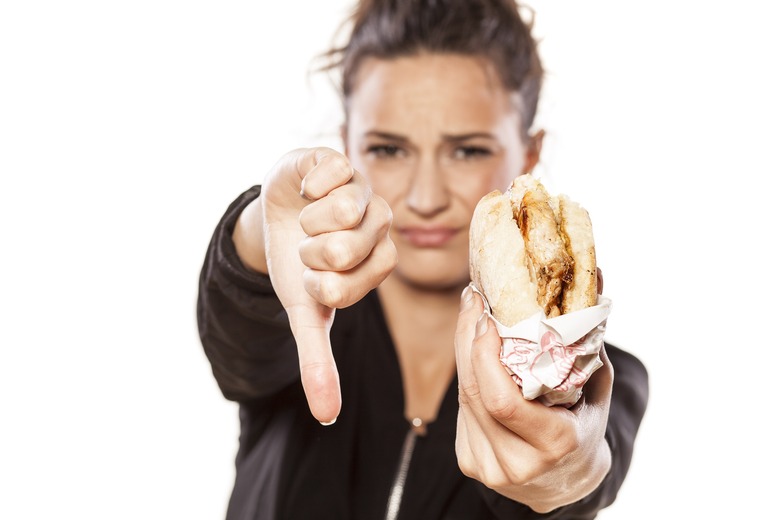Scientists Speak Out Against Pro-Vegan Documentary 'What The Health'
Directed by Joaquin Phoenix and popularized on Netflix, the documentary What the Health has thousands of watchers — including the singer-songwriter Ne-Yo — going vegan after hearing the film's dramatic claims about the harmful side effects of animal products. According to the film, animal products such as meat and eggs are the culprits behind health monstrosities such as obesity, cancer, and diabetes.
The narrator of the film, a self-proclaimed hypochondriac, is being criticized for guiding viewers through over an hour of scare tactics and footage condemning the American (and worldwide) habit of eating meat, when in actuality America's behemoth health problems are likely attributable to other causes.
Scientists, dietitians, and other health professionals are enraged over the chaos the film is producing, voicing concerns that the claims made in the film are flimsy at best — cushioned by blatant scaremongering and distortion rather than science-based evidence. We're not taking liberties to exaggerate (although the film certainly does); Alice Howarth, research associate at the University of Liverpool's Institute of Translational Medicine stated it bluntly: "What the Health overwhelms the viewer with scaremongering 'facts' which do not hold up to scientific investigation."
The controversy escalates with the film's dramatic allegations. It claims that consuming just one serving of processed meat each day increases risk of Type 2 diabetes by 51 percent and eating an egg is as detrimental to your health as smoking five cigarettes.
However, scientists are saying that neither of these claims — nor many others — is sufficiently backed up with trustworthy evidence by the sources listed by the film's website. The sources are cited, which makes believing the claims without a second look all too easy for average viewers (who aren't going to pore over the studies and research for holes). But trained eyes are voicing qualms with the so-called "evidence."
For instance, Alexandra Freeman, executive director of the Winton Centre for Risk and Evidence Communication at Cambridge University, told The London Times that the studies cited condemning eggs are extremely controversial and outdated. Further research has since provided reason to believe that eggs are not responsible for higher levels of cholesterol at all and may, in some cases, actually help.
The increase of diabetes risk was also a heavily warped statistic — the 51 percent increase in diabetes risk is actually just a magnified quantity obtained from "an increase from a tiny value to another tiny value," says Alexandra Freeman, the executive director of the Winton Centre for Risk and Evidence Communication. New York dietitian Mary Jane Detroyer agrees, calling the claim "distorted science" in an interview with the Daily Mail.
Detroyer even calls to light an important discrepancy in the research "uncovered" during scenes of the film. She explains that when the makers of the film spoke with doctors at the American Diabetes Association, they asked specifically about poorly-executed studies.
"There's a scene where he's speaking to these doctors," she explains, "and the doctors don't want to go into the studies. That's because those studies weren't good." But the quality of the studies, such as the sources of their funding and budgeting limitations, are not discussed in the film.
Many complexities are overlooked — including the definitions of fear-inducing terms such as "toxicity." The film condemns fish for being "toxic," which Detroyer says is an oversimplification of the situation. Some fish available on the market contain lower levels of toxins than others.
These scare tactics are not without consequence. Many dietitians, including Detroyer, are upset at the film's callous fearmongering around food.
Dana Harrison, MS, a Boston-based nutritionist explained to The Daily Meal that "[her] concern is how the public reacts to this movie, specifically the scare tactics, false statements, and cherry picked data." She agreed that the tactics "not only lead to confusion, but also leave no room for achieving a balanced and healthy diet outside of being vegan."
Harrison is hosting a tell-all conversation about the film with her audience on Instagram after receiving over 50 requests to comment on the film's allegations — to say that she, among other health professionals, is concerned with the backlash this film leaves behind would be an understatement. In a population in which 75 percent of women experience a disordered relationship with food, increasing the population's fear of certain foods without offering an appropriate basis in evidence is caustic and corrosive to American health outcomes.
"The best advice is to always be your own advocate for your health, which involves doing some research," Harrison concluded in her conversation with The Daily Meal. "Do what works for you and your health, vegan or not."
